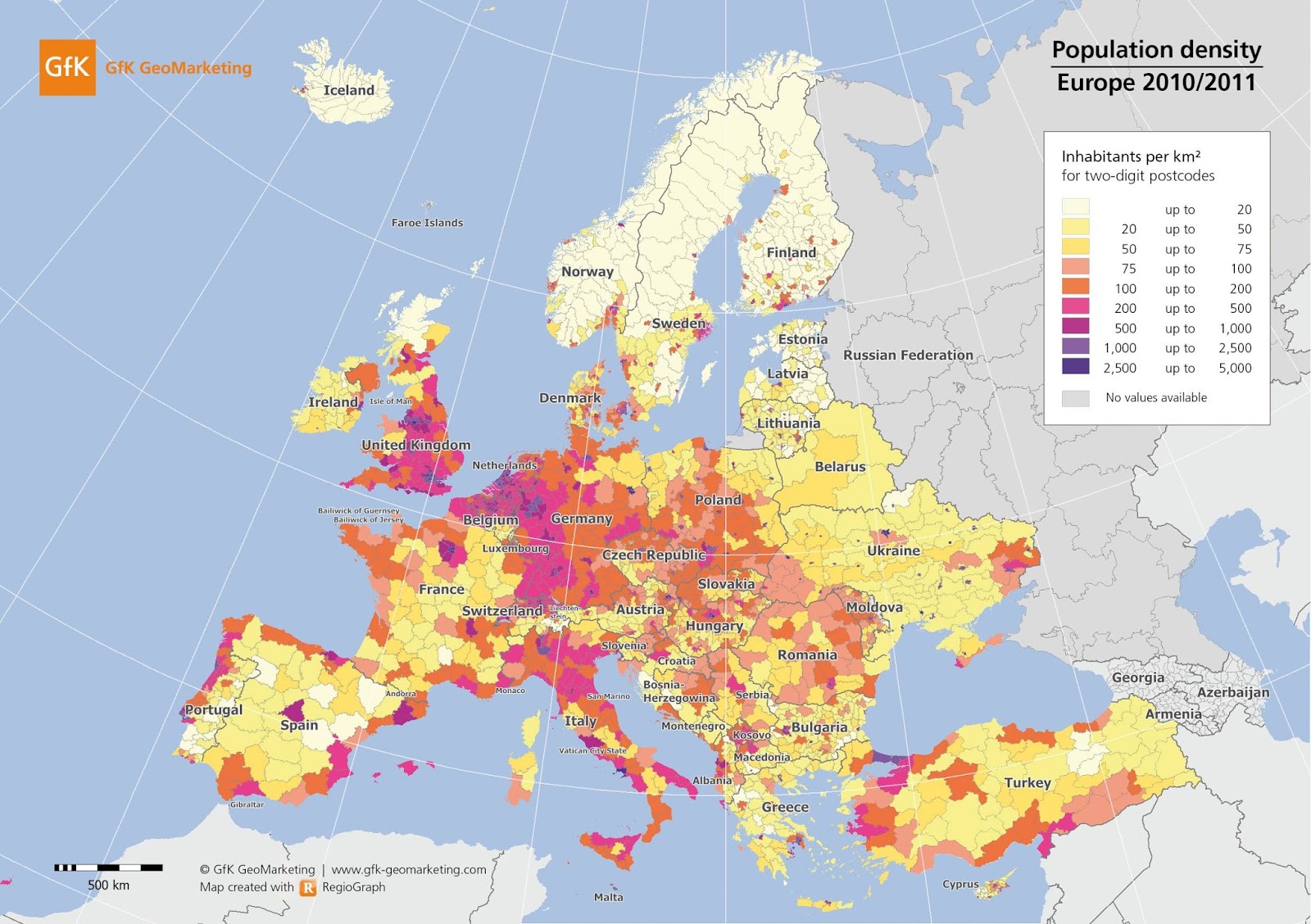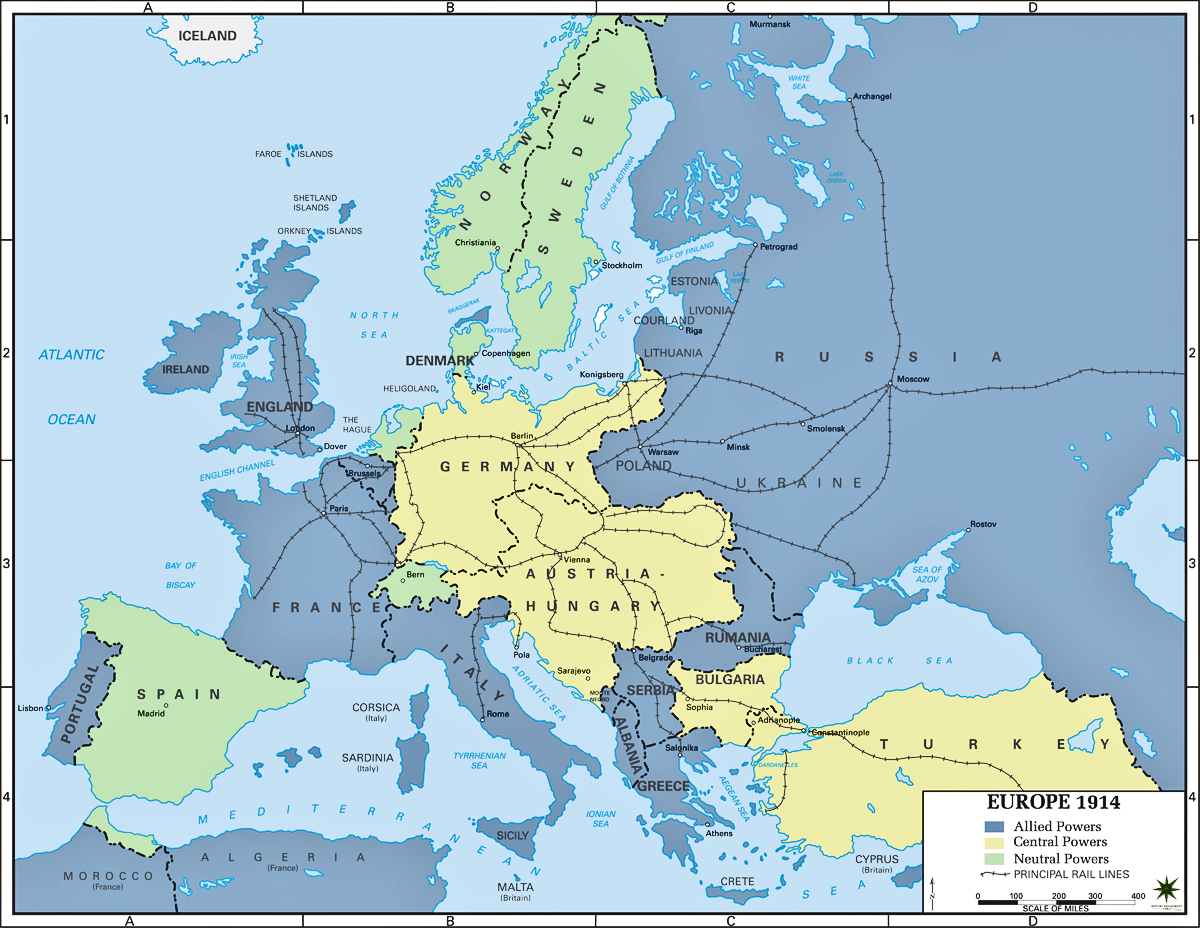First of all, I would like to mention the fact that I
strongly enjoy this conversation with you, wm!

Anyway, though, here goes:
wm wrote:It seems we are going to take away from the Russian bear a few things he really likes. And he is three times our size. This really looks like a risky business.

Actually, if Russia will be reduced to its Brest-Litovsk borders, then Russia's population advantage over Germany should decrease from almost 3 to 1 (as in, about 180 million to about 65 million) to about 1.5 to 1 (about 100 million to about 65 million).

In turn, this means that managing the threat of Russia will probably become
much easier for Germany.

The Russian could have grudgingly accepted the new countries which took away "their" territories - Poland, Latvia and Estonia, because they actually had some rights to do that.
You mean just like the Russians "accepted" the results of the 1991 Ukrainian independence referendum (where
over 90% of Ukrainians voted in favor of independence) in real life by trying to reincorporate and reintegrate Ukraine afterwards?

But a totally foreign power, especially in Baku - no way.
First of all, from the perspective of national self-determination, Russia certainly has
no more of a claim to Baku than the Ottoman Empire has. Indeed, one can argue that the Ottoman Empire actually has a
more legitimate claim to Baku than Russia has due to the fact that, unlike Russia, both the Ottoman Empire and Baku have a Muslim-majority population.

Secondly, Germany needs to strip Baku from Russia (and, if necessary, to give Baku to its ally the Ottoman Empire afterwards) in order to reduce Russia's access to Baku's
extremely large oil reserves.

After all, less oil from Baku probably means less industrial might and less military might for Russia.

Now, is Russia actually going to be happy about the loss of oil-rich Baku? Hell No! However, if the Ottoman Empire's new border with Russia will be made along the Greater Caucasus Mountains, then Russia probably
isn't going to be able to do
anything about its loss of Baku for an
extremely long time

:

After all, a new Russo-Ottoman border along the Greater Caucasus Mountains is very likely going to be
extremely defensible for the Ottoman Empire.

Indeed, the Greater Caucasus Mountains appear to be just as good of a defensible border as the Alps are.

This would be a recipe for a new war, and then another, and another till the desired outcome would be reached.
Let me say this--in 1918, after the signing of the Treaty of Brest-Litovsk, some Western (I think American) magazine predicted that Russia will
never permanently tolerate the loss of both the Baltic states and Ukraine. However, 98 years later, in 2016, Russia appears to have very much come to tolerate the loss of
virtually all of these territories (indeed, even Crimea and the Donbass are only a
very small part of Ukraine).

Thus, while Russia is certainly going to initially be
extremely angry at the loss of some/most/all of these territories, it will almost certainly eventually get over the loss of
all or at least
virtually all of these territories.

Of course with the full support of the other defeated nations; Britain,
If Britain enters World War I in this scenario, that is.

After all, a more rational German Kaiser might have been less provocative towards Britain in the pre-World War I years and might have
rejected the Schlieffen Plan and thus caused Britain to remain neutral in World War I.

France,
The thing is, though, that the loss of resource-rich Briey and Longwy combined with crippling reparations to Germany and crippling restrictions on the size of France's military is probably going to
permanently cripple France and thus is probably going to
permanently ensure that France will
never become a threat to Germany
ever again.

the US.
The U.S. will remain neutral throughout
all of World War I in this scenario, though.

After all, Germany certainly
cannot win World War I if the U.S. enters World War I on the side of the Entente/Allies.

Similarly, the Ukrainians could have grudgingly accepted a Polish or Russian rule - at least for some time, but a true foreign occupant would be unacceptable for their elites. And in the twenties/thirties their independence movement was quite strong and becoming stronger every day.
The thing is, though, that a sufficiently smart German Kaiser (such as if German Kaiser Wilhelm II dies young) can only use both Latvia and Estonia as Lebensraum (on historical grounds--after all, both Latvia and Estonia were previously successfully conquered by the ethnically German Teutonic Knights and both Latvia and Estonia have a mostly ethnic German nobility even as late as the early 20th century) while allowing other newly liberated countries such as Poland, Lithuania, and Ukraine to mostly/largely run and manage their own affairs on the condition that they agree to establish both close military ties and close economic ties with Germany.

Futurist wrote:What about ethnic German peasants from Russia (such as from the Volga area/region), though? Wouldn't many of them have been willing to move to and to permanently settle in Latvia and Estonia if Germany would have actually given them sufficient incentives to do this? Completely serious question, for the record.
With sufficient incentives everything is possible but Germany was as rich then (using GDP p/c) as today's Cuba or Honduras. They really didn't have that much money to burn.
Wouldn't large-scale World War I reparations from France and Russia have resulted in Germany having
much more money to burn, though?

The territories maybe were sparsely populated but there was no free land there as far as I know. Its owners would have to be pay off or cleansed.
Actually, it states this here:
https://books.google.com/books?id=y37zY ... on&f=false
(On page 208 of the book above.)
"To strengthen their ethnic base, Baltic Barons agreed to cede a third of their land for German settlement."
If you are curious, the Baltic Barons were the ethnically German nobility of both Latvia and Estonia.

Futurist wrote:Couldn't World War I reparations by France and Russia provide the money for this, though?
They would have lots of internal problems which would badly need that money; their economy was in tatters, internal debt, unemployment, veterans.
Wouldn't a lack of a British blockade (if Britain remains neutral throughout
all of World War I in this scenario) have resulted in a
much better German economic situation in both the late 1910s and the 1920s in comparison to real life, though?

For this reason I would say even the Germans themselves wouldn't support this project.
What about poor landless German peasants from southern Germany, though?

After all, I seem to recall that Michael Mills previously mentioned that the German government wanted to settle such German peasants in Livonia and Estonia in 1918 (and afterwards, but Germany ended up losing World War I and thus losing both Livonia and Estonia).
Also, though, what about German World War I veterans? Indeed, couldn't many German World War I veterans want to get rewarded for their military service during World War I with some free (or at least
extremely cheap) land in Latvia and/or in Estonia?

A metropolis on the shore of a large puddle the Baltic is.
I meant a metropolis needs an economy to support it.
Couldn't large-scale industrialization in both Latvia and Estonia create such an economy, though?

The Baltic is the world's boondocks,
And Scandinavia
isn't likewise the world's boondocks?

unsuitable for larger ships to boot.
Do you have a source for this, please?
Also, though, I would like to point out that a victorious Germany can use the railroads in both Poland and Lithuania to ship/transfer people and goods to both Latvia and Estonia.

I major shipping center, metropolis is not going to happen there. Any European exporter would preferred a port with a direct access to main shipping lanes every time.
Is Paris and/or Madrid a major shipping center, though?

Also, is London and/or Berlin a major shipping center?

New York City, San Francisco, Los Angeles, San Diego are such ports and simultaneously gates to something. But this metropolis would be a gate to nowhere.
Is Chicago such a port and a major shipping center, though?






